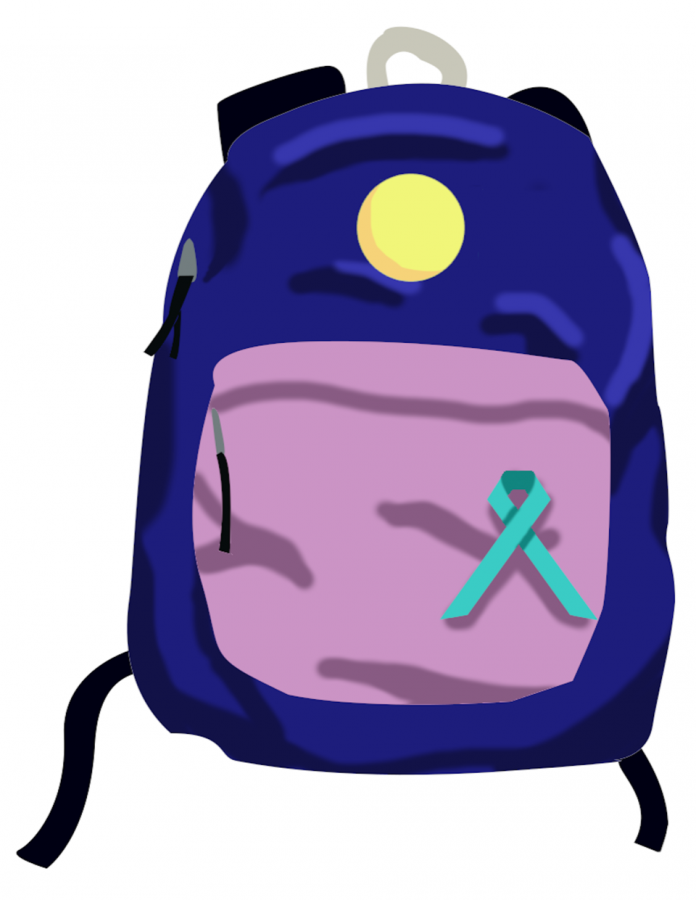What’s the worst that could happen? Someone I love gets in a car crash and dies? The Patriots lose the Super Bowl? I get COVID-19?
As someone with obsessive-compulsive disorder, these are the thoughts that run through my head all the time. It is exhausting, painful and uncontrollable.
This upcoming week is International OCD Awareness Week. OCD is a mental disorder where patients experience intruding thoughts and compulsions. Symptoms interfere with daily life, including work, school and personal relationships. According to the National Institute of Mental Health, common symptoms of obsessive-based OCD can include a fear of germs and contamination, unwanted ideas involving harm, aggressive thoughts towards others and having things symmetrical or in perfect order.
These obsessions correspond to some common compulsions, including excessive cleaning and handwashing, arranging items in a particular way, repeatedly checking things and compulsive counting. Most people are diagnosed with OCD in their teenage years, and treatments include talk therapy or medication.
I was diagnosed with OCD this past February, but I have exhibited symptoms since middle school. When I was younger, my parents called me a germaphobe and I had unusual compulsions such as tapping objects. When I entered high school, the frequency and severity of my symptoms increased. I developed new compulsions, some of which are more common among OCD patients, and some were more unique to my case. My symptoms peaked during junior and senior year of high school when I was the most stressed with schoolwork, extracurriculars and college prep. Though it is hard to estimate, at its peak, I believe that I spent three hours a day acting on OCD compulsions.
As previously mentioned, fear of germs or contamination is a common obsession among patients. Living in a global pandemic amplifies that fear, especially for students living in college where the virus can potentially spread like wildfire. College dorms specifically are an OCD patient’s worst nightmare: hundreds of students are crammed into tiny rooms and share communal bathrooms, showers and hangout spaces. Common touch points are everywhere, and in the mind of someone with OCD, all surfaces are contaminated.
The administration has implemented a strict, well-thought out plan to prevent an on-campus outbreak. However, in order to successfully function, the student body must fully adhere to the guidelines, which appears to be an unrealistic standard. College students are the most social age group and desire interaction more than ever, especially after spending five months in quarantine at home.
“… I have since found a welcoming group of friends. I can still hang out with them and enjoy their company, all while taking my own precautions. At the end of the day, I return to my room which I commonly refer to as my “safe space” where I can let my COVID-19 guard down.”
At the start of the semester I lived in a double room. However, I soon realized that few people had the same vigilance for COVID-19 as myself. Along with the support of my parents, I made the decision to transfer to a single room. I had concerns for my mental well-being and physical health because I have a compromised immune system.
Moving rooms after orientation made it difficult to meet people, but I have since found a welcoming group of friends. I can still hang out with them and enjoy their company, all while taking my own precautions. At the end of the day, I return to my room which I commonly refer to as my “safe space” where I can let my COVID-19 guard down. I constantly sanitize surfaces and run an air-purifier.
When around campus, I take extra precautions such as constant hand sanitizing, opening doors by kicking them open, and wiping down surfaces multiple times. Though the administration recommends many of these precautions, I often take them to the next level and find myself constantly thinking about them.
Returning to campus in a pandemic has of course been stressful for all students. Clearly, my OCD adds to the stress of my first semester college experience. As time has progressed, I feel I have adapted well to the circumstances. I have made friends, I have successfully focused on my studies and I appreciate all the opportunities afforded by the College of William and Mary.
I know that I am not alone in these OCD struggles. I am sure there are thousands of students diagnosed with OCD who are yet to adapt to their circumstances. I encourage them to reach out for help and take full advantage of the resources available, especially those provided by their school.
Email Jake Forbes at jmforbes@email.wm.edu.

